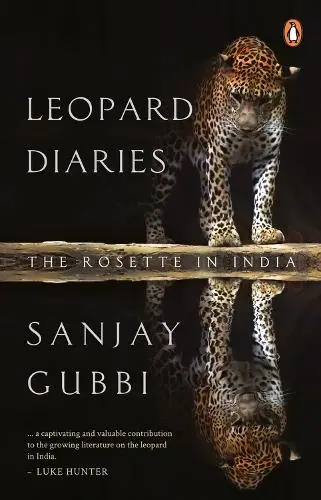
Save: 10%

Save: 1%
Leopard Diaries: The Rosette In India
Publisher:
| Author:
| Language:
| Format:
Publisher:
Author:
Language:
Format:
₹499 ₹424
Save: 15%
Out of stock
Receive in-stock notifications for this.
Ships within:
Out of stock
| Book Type |
|---|
ISBN:
Page Extent:
Evolution is an exquisite artist, even if an unconscious one.’- Eric Dinerstein
The leopard is perhaps one of the world’s most beautiful creatures. The spots on its body are even romantically called ‘rosettes’. It is social but solitary, inconspicuous but significant in numbers, large but elusive, and does not fit any of the pigeonholes of large-cat conservation. In India, the leopard is a poster boy of the fight to preserve wildlife, but in many countries, it faces either ecological or local extinction. A worrying phenomenon, given that these cats carry out important ecosystem services that have not been fully understood yet.
In Leopard Diaries: The Rosette in India, Sanjay Gubbi, who has studied and documented the leopard for nearly a decade, gives us a close look at this fascinating creature. From detailing its food habits to throwing new light on how the young are reared, from offering suggestions on tackling leopard-human conflict to imagining the future of this arresting animal, this book is a 360-degree view of the leopard, its ecological context, its fraught relationship with the human world, and how wildlife and human beings can find a way to co-exist.
Evolution is an exquisite artist, even if an unconscious one.’- Eric Dinerstein
The leopard is perhaps one of the world’s most beautiful creatures. The spots on its body are even romantically called ‘rosettes’. It is social but solitary, inconspicuous but significant in numbers, large but elusive, and does not fit any of the pigeonholes of large-cat conservation. In India, the leopard is a poster boy of the fight to preserve wildlife, but in many countries, it faces either ecological or local extinction. A worrying phenomenon, given that these cats carry out important ecosystem services that have not been fully understood yet.
In Leopard Diaries: The Rosette in India, Sanjay Gubbi, who has studied and documented the leopard for nearly a decade, gives us a close look at this fascinating creature. From detailing its food habits to throwing new light on how the young are reared, from offering suggestions on tackling leopard-human conflict to imagining the future of this arresting animal, this book is a 360-degree view of the leopard, its ecological context, its fraught relationship with the human world, and how wildlife and human beings can find a way to co-exist.
About Author
Reviews
There are no reviews yet.



Reviews
There are no reviews yet.